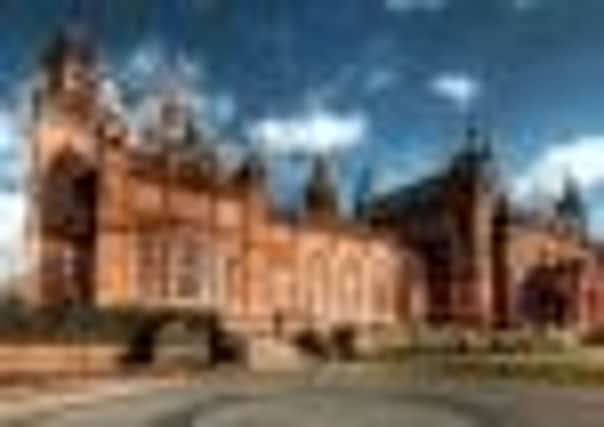Michael Kelly: Glasgow, victimised and ignored


Glasgow continues to discover ways of making its citizens proud. Despite many deep seated social problems – from unemployment and bad housing to poor health and poverty – the city keeps finding ways to sustain the cultural life of its people.
This is a city council which despite continuing attacks on its budget is determined to fight for the higher things in the lives of its citizens by protecting its museums and art galleries. The fact that Kelvingrove is the only Scottish art gallery shortleeted this year for the UK Museum of the Year award may surprise many who have seen city council expenditure severely restricted by savage Scottish Government policies. As a former Labour councillor and Lord Provost I am, of course partisan, but most reasonable people would accept that the SNP is discriminating against Glasgow when it will receive £153 million less over the next two years than it would were it to receive the same percentage share of the local government budget as it did when Alex Salmond first took office in Holyrood.
Advertisement
Hide AdAdvertisement
Hide AdLate last year councillors were briefed that limits on Scottish Government funding would create a deficit of £48.8m by 2015 and that a further shortfall of £50m was to be expected from 2015-17. To tackle this financial black hole the council is already cutting 2,800 jobs.
Yet it has managed to do this while at the same time protecting its cultural heritage – an election pledge. Heritage is what Kelvingrove represents. Since 1901 it has witnessed the awe of generations of Glasgow’s children whose parents still make the Sunday pilgrimage to wonder at its armour and natural history exhibits.
But the £28m refurbishment for which the city raised the funding was not entirely for the education and edification of the citizens. It was further to enhance Glasgow’s growing reputation as a visitor centre. And it paid off. Kelvingrove is the most popular free attraction in Scotland and the most visited museum outside London. And Glasgow has done this while continuing to protect other cultural assets such as the Burrell Collection, the Museum of Modern Art, Scotland Street School and the People’s Palace. In-between times it found the £74m to build the Riverside Museum to house its transport collection. And the council has promised to hold a year-long celebration of Glasgow’s cultural life in 2014 to coincide with the Commonwealth Games – not something that any host city has done before.
All of this activity has been noticed internationally. Not only is Kelvingrove in line for an award but Glasgow has secured the hosting of the Turner Prize for 2015 and has been shortleeted as European Green City for the same year. Concentrating solely on the cultural field ignores the work done in preserving Glasgow’s green spaces – especially the award winning Pollok Country Park and its development of sporting facilities for the young. Oh, and it is organising a Commonwealth Games for next year.
This is a city punching above its weight. As the UK’s second city it is asked to compete with others of the same standing such as Barcelona, Munich, Milan and Lyon. While international comparisons are compelling, lack of achievement closer to home may reveal more about how well Glasgow is doing.
Aberdeen has been in turmoil over the proposed redevelopment of Union Street Gardens and Edinburgh’s reputation will never recover from the trams fiasco. The capital has more of it’s architectural fabric to preserve but taking years to agree the relatively modest Haymarket redevelopment suggests that significant opinion in the city favours preserving it in aspic. Meanwhile Glasgow quietly continues with an expansion of the Buchanan Galleries and Concert Hall to murmurs of approval on all sides.
Glasgow seems to be exceptional in Scotland in that its council is generally popular with its electors. In many local authorities areas in Scotland there is a dichotomy and an antagonism between councils and the people they govern. In Glasgow, apart from the usual moans about politicians in general, you detect across the spectrum – from the deprived areas to the business community – that Glaswegians have accepted over the long run that the council does its best for its citizens.
In the council there has always been an understanding of the priorities that Glaswegians share and this has produced a unity of purpose which has allowed the city to cope well under trying circumstances – first, those created by Thatcher’s policies and now by the even more severe attacks on the autonomy of local government mounted by a Scottish administration that sees the city as a barrier to its perpetrating its follies on the country. A few of the West End intelligentsia and literati did complain when Glasgow decided to play down many of its problems and concentrate instead on promoting the positive aspects of the city. But over the last 30 years the new private investment and employment that has flowed from that policy change has silenced even the most left-wing critics.
Advertisement
Hide AdAdvertisement
Hide AdGiven the city’s track record in generating policies that enjoy widespread support and in working with the private sector and in sound administration it is a scandal that the Scottish Government refuses to recognise the contribution that the city is making to the revival of the national economy. Far less than recognition or support it is actively working against Glasgow by depriving it first of taxpayer funds and secondly by refusing it the means to raise public money locally. The Scottish Government may counter this by pointing to the money allocated to the Commonwealth Games. But that is not motivated by a desire to help Glasgow. It is being done so that Alex Salmond can claim exclusive credit for a badly needed success in his referendum year. The country would get a much better return on the £13m that he is wasting on his referendum if it were handed over to Glasgow to spend.